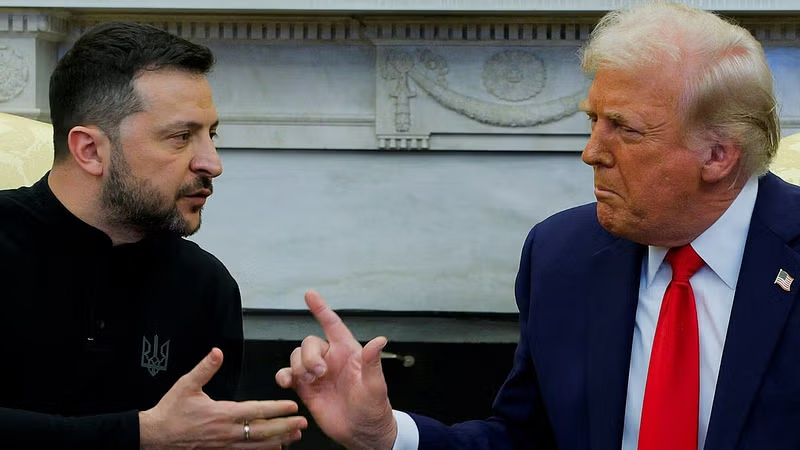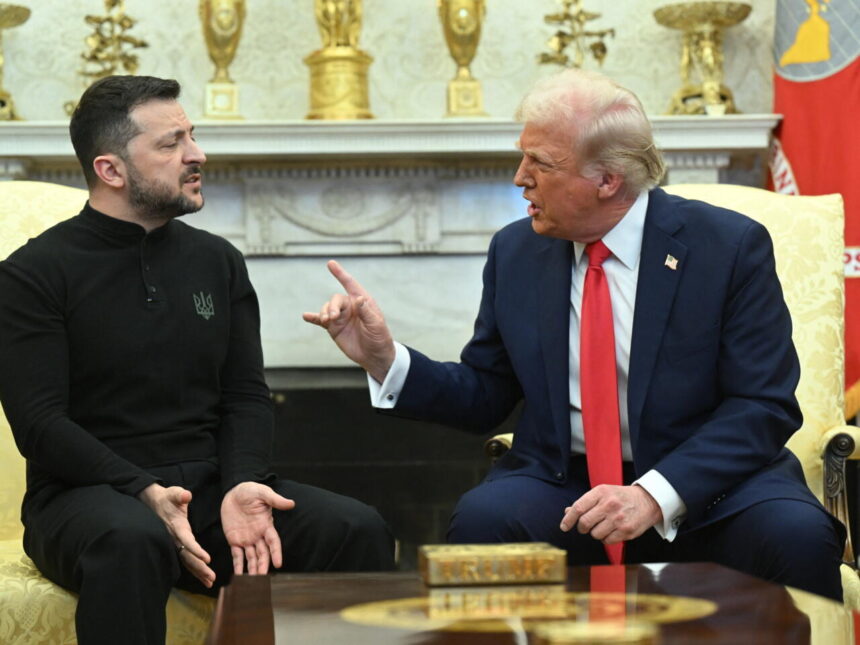U.S. President Donald Trump has publicly criticized Ukrainian President Volodymyr Zelensky for refusing to accept a proposed U.S.-brokered peace deal that would involve concessions over Crimea, the peninsula Russia illegally annexed in 2014.

Writing on Truth Social, Trump claimed that a deal to end the war in Ukraine was “very close,” but said Zelensky’s unwillingness to concede to U.S. terms “will do nothing but prolong the conflict.”
Zelensky’s Staunch Refusal on Crimea
Ukraine has consistently held that Crimea is sovereign Ukrainian territory. Responding to suggestions that he accept Russian control, Zelensky declared, “There’s nothing to talk about here. This is against our constitution.”
Recognizing Russia’s claim over Crimea, experts note, would not only be politically impossible for Kyiv, but would also violate post-World War II legal norms against altering borders through force.
Trump’s Frustration Grows

Speaking from the Oval Office, Trump told reporters he had expected Zelensky to be more cooperative than Russian President Vladimir Putin. “I thought it might be easier to deal with Zelensky. So far, it’s been harder,” he said.
On the campaign trail, Trump has repeatedly promised he could end the war in Ukraine within 24 hours. Now nearing his 100th day in office, that promise remains unfulfilled. “The president is frustrated,” White House Press Secretary Karoline Leavitt said. “His patience is running very thin.”
US Peace Plan: Freeze the Lines?
Vice President JD Vance recently laid out the U.S. vision for a settlement, suggesting it would “freeze the territorial lines… close to where they are today.” He implied that both Russia and Ukraine would have to “give up some of the territory they currently own.”
So far, the administration has not disclosed exact details on which areas might be involved in such a territorial compromise, raising concerns both at home and abroad about the potential implications.
Rising Civilian Casualties as Peace Talks Drag On
The dispute over Crimea comes amid intensified Russian attacks on Ukraine. In Kyiv, two people were killed and 54 injured, including children and a pregnant woman, after overnight drone strikes caused widespread destruction. Fires broke out in residential areas, trapping civilians under rubble.
Elsewhere, in Marhanets, nine workers were killed when a Russian drone struck a bus, and blasts were reported in Kharkiv as well. Russia’s renewed assaults follow a brief lull during the Easter weekend.
Diplomatic Moves and Missed Meetings
The diplomatic front has also seen turbulence. A planned ceasefire meeting in London—which included officials from the UK, France, Germany, Ukraine, and the U.S.—was downgraded after U.S. Secretary of State Marco Rubio and special envoy Steve Witkoff unexpectedly withdrew.
Instead, U.S. envoy Gen. Keith Kellogg attended the talks, while Witkoff was redirected to Moscow for yet another round of negotiations with Putin—his fourth such visit.
British officials expressed surprise over the last-minute shift. While the U.S. State Department cited logistical issues, insiders confirmed it left the Foreign Office blindsided.
Standoff Continues
Ukraine’s government remains firm. Yuriy Sak, adviser to the Ukrainian Ministry of Strategic Industries, said Ukraine would attend talks with “a very clear, narrow mandate” focused on achieving a durable ceasefire that respects its sovereignty.
As the war drags into its third year since Russia’s full-scale invasion began on February 24, 2022, the human toll continues to mount, with hundreds of thousands dead or injured and millions of refugees worldwide.
For now, hopes for peace rest on an increasingly fragile diplomatic thread—one that may snap if core issues like Crimea remain unresolved.
Categories: International News, US Politics, Ukraine Conflict, Russia
Tags: Trump, Zelensky, Crimea, Russia Ukraine war, Ukraine peace deal, Truth Social, JD Vance, Marco Rubio, Keith Kellogg, Moscow talks, ceasefire









